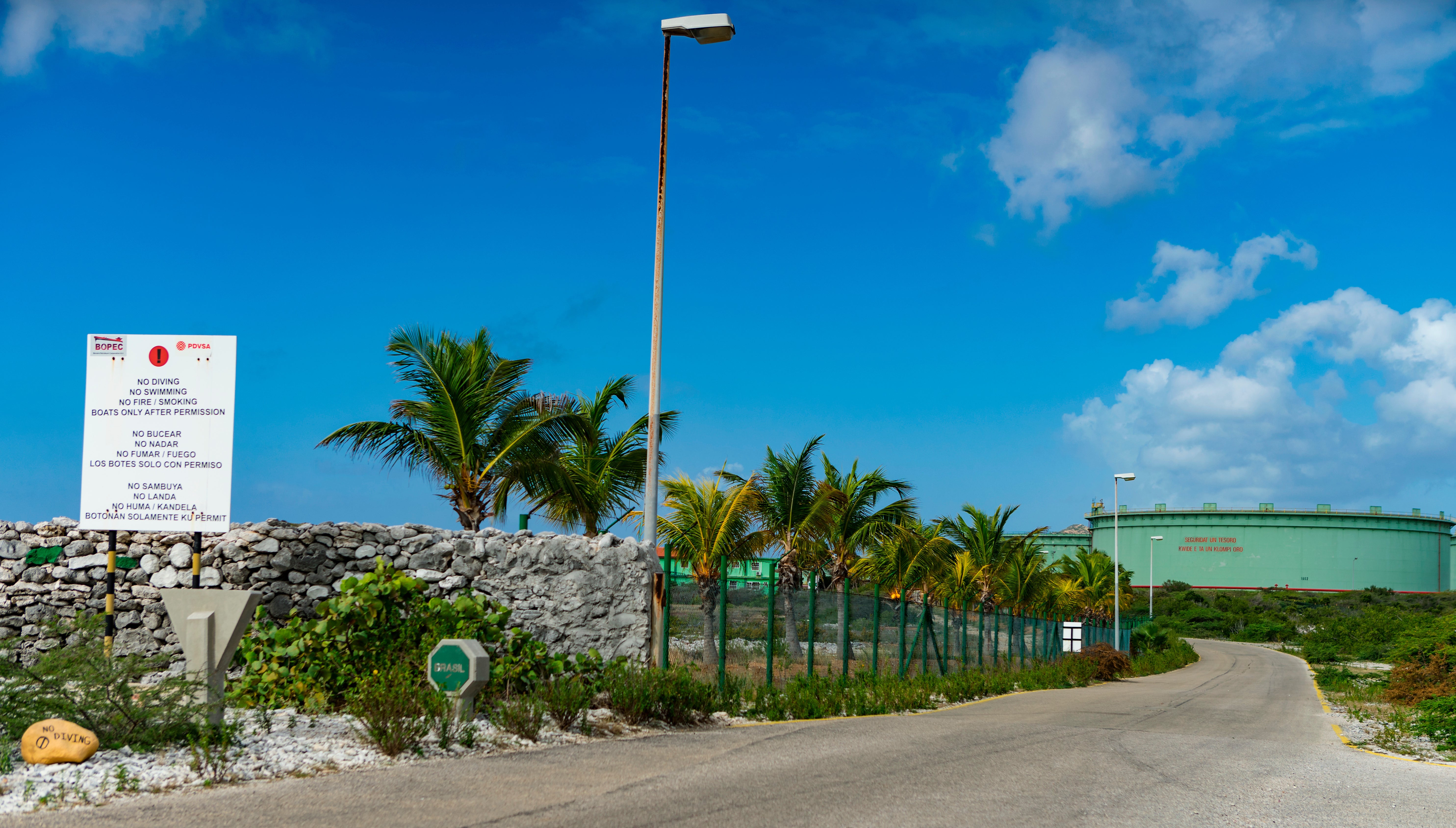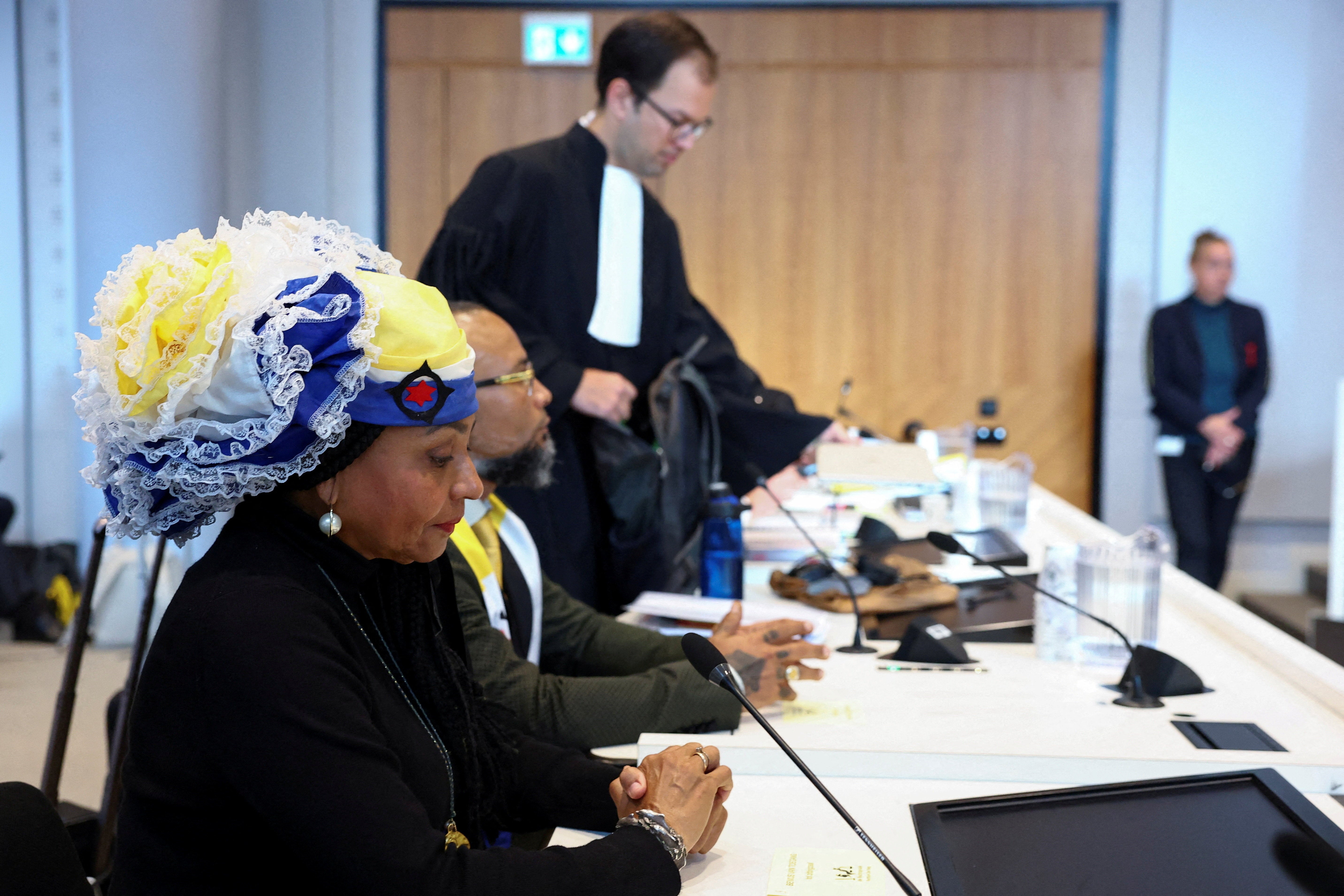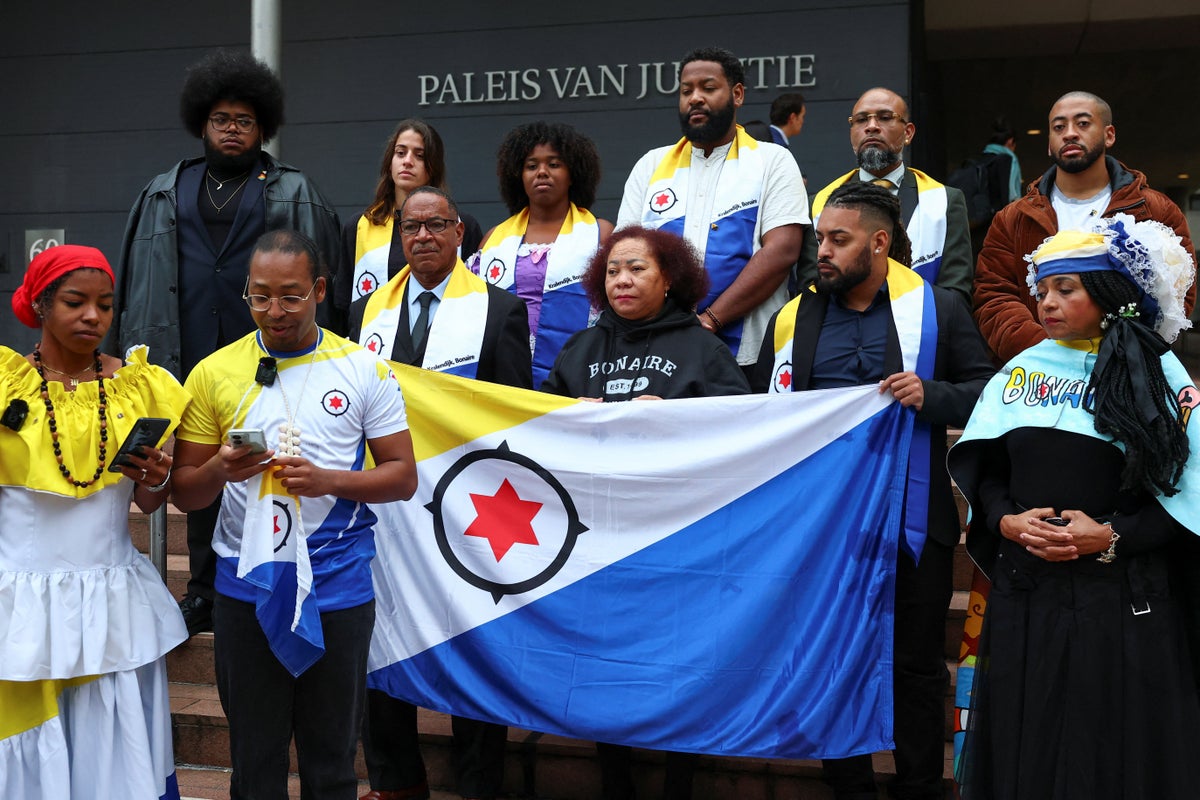From reproductive rights to climate change to Big Tech, The Independent is on the ground when the story is developing. Whether it’s investigating the financials of Elon Musk’s pro-Trump PAC or producing our latest documentary, ‘The A Word’, which shines a light on the American women fighting for reproductive rights, we know how important it is to parse out the facts from the messaging.
At such a critical moment in US history, we need reporters on the ground. Your donation allows us to keep sending journalists to speak to both sides of the story.
The Independent is trusted by Americans across the entire political spectrum. And unlike many other quality news outlets, we choose not to lock Americans out of our reporting and analysis with paywalls. We believe quality journalism should be available to everyone, paid for by those who can afford it.
Your support makes all the difference.
Read more
Residents from the Dutch Caribbean island of Bonaire have launched legal action against the Netherlands, accusing the nation of failing to adequately protect them from the escalating impacts of climate change.
A farmer, a prison guard, and a teacher were among those who testified in a Hague courtroom on Tuesday, in a case supported by environmental group Greenpeace.
This legal challenge follows a series of international landmark rulings that have established governments’ broad obligations to safeguard citizens from increasing temperatures and rising sea levels.
Farmer Onnie Emerenciana travelled 4,000 miles to detail how warmer conditions and drought have devastated his crops and livelihood.
The 62-year-old said that for those unable to afford air conditioning, summers have transformed their homes into “prisons of concrete”, urging the Dutch government to provide greater assistance to the self-governing island, a former Dutch colony.
Bonaire, alongside St. Eustatius and Saba, became a special Dutch municipality in 2010, with its 20,000 inhabitants holding Dutch citizenship.
Michael Bacon, the lawyer representing the plaintiffs, told the court: “The Netherlands presents itself internationally as a champion of ambitious climate policy. The problem is that the state is not putting its words into action.”

open image in gallery
Bonaire, alongside St. Eustatius and Saba, became a special Dutch municipality in 2010, with its 20,000 inhabitants holding Dutch citizenship (Stephan Kogelman)
The plaintiffs are demanding concrete action from the Dutch state to address the climate crisis affecting their island.
Lawyers for the government say the country is making strides to combat climate change, citing greenhouse gas reductions and mitigation efforts. Ultimately, the state argues, addressing the problem is a matter for the government, not courts.
The problem is “complex”, lawyer Edward Brans told judges, and can only be solved by “political decisions”.
The case is being heard at the District Court of The Hague, where the landmark Urgenda proceedings began more than a decade ago, and in 2019, the Dutch Supreme Court ruled in favor of climate activists and ordered the government to cut greenhouse gas emissions.

open image in gallery
Plaintiffs Jackie Bernabela and Angelo Vrolijk in the court (REUTERS)
The Urgenda decision featured prominently in recent climate change decisions from the European Court of Human Rights and the United Nations’ highest court, the International Court of Justice.
Both courts found that failing to combat climate change violated international law.
In the decade up to 2023, sea levels rose by a global average of around 4.3 centimetres (1.7 inches), with parts of the Pacific rising higher still.
The world has also warmed 1.3 degrees Celsius (2.3 Fahrenheit) since preindustrial times because of the burning of fossil fuels.
The hearings will continue on Wednesday.
